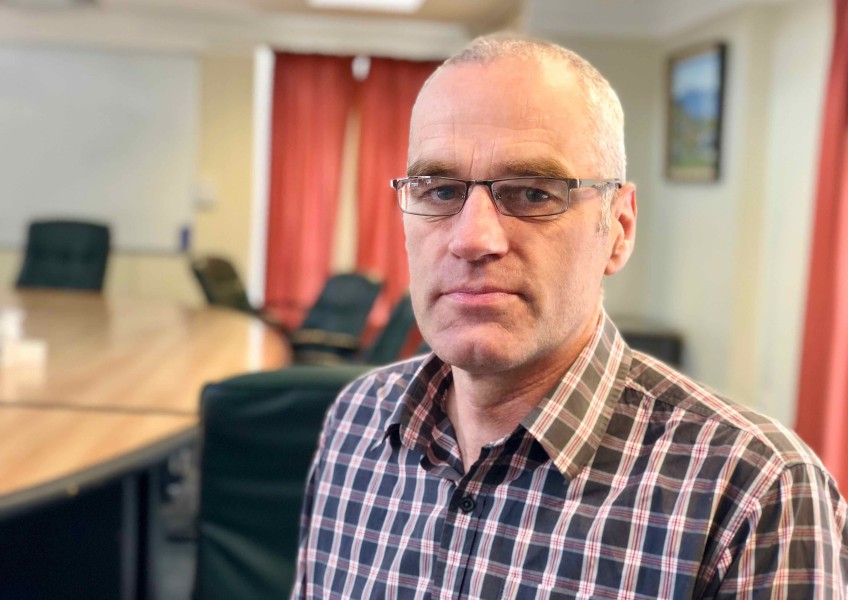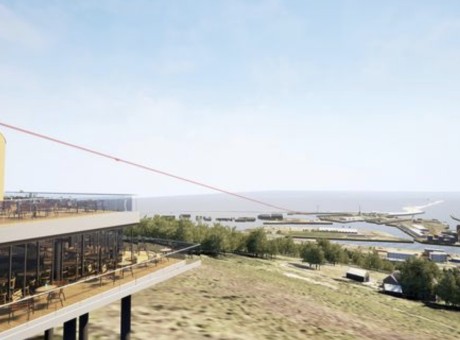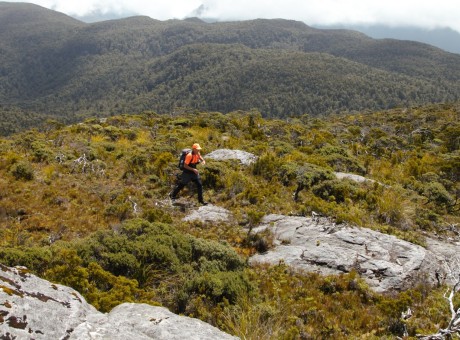Local Start Ups finally find their feet

This story is published through a partnership between Crux and the NBR.

Main Image: Peter Harris, the QLDC's Economic Development Manager
The pain and the pleasure of start-ups is well known. But most of all – the pain.
Looking for money when no business has gone before you to establish a market. Trying to sustain a reasonable valuation when it’s all guess work and negotiation, often David against Goliath. It’s painful.
But the pleasure of becoming respected and rich is often just a distant dream, especially in New Zealand where everything tends to be relatively small. In spite of our legendary punching above our weight, it’s still cash in the bank that counts.
Cash for start-ups is now more accessible than ever before, not necessarily because there is more of it, but because our culture has changed.
Richard Liew edits NZ Entrepreneur magazine. It’s targeted at the Start Up space. He says it’s now all about Kiwi culture.

Richard Liew of NZ Entrepreneur magazine is based in Wanaka - he sees a quantum shift in culture taking place.
“There's absolutely a fear of going against the grain and stepping out and trying something new. Everyone else around you is going ‘Why would you do that? What do you think you are doing and who do you think are?’ There are really two fears. The fear of failure of course, because nobody wants to look like an idiot. And then also there's the other side, which is the fear of success as well. The Tall Poppy Syndrome.”
But Richard believes that is all changing. He says he’s seen a quantum shift from those old Victorian values to something much more akin to Silicon Valley with their legendary ability to embrace failure as a marker on the road to success.
Not that New Zealand’s track record with start-ups has been all that bad. The Ice House in Auckland has done great work for ages and become a legend in its own time, along with numerous angel investor groups that have been brave and reassuring when the rest of the country has run a mile from the risk and extreme challenges that go hand in hand with early stage, entrepreneurial projects.
Richard Liew says the dots are finally been joined and he says that the new trick is to separate those that have the money from those that are receiving it. It’s counter intuitive in many ways and something of a slap in the face to all the well-meaning official agencies that have tried, and often failed, to get properly into bed with the struggling founders of leading edge, early stage businesses.
“Often the best thing start-ups can do is engage with fiscal entrepreneurs from within the area they are working in. Ideally someone who has been there and done that. Typically, someone who has built a successful start-up and has a bit of a proven track record. In many ways government departments, and other official agencies, are the least entrepreneurial of all the options - the antitheses in many ways.”
In terms of those dots getting joined, many people thought it would be the Ice House that would become a sort of National Start Up Agency, but the Ice House has stayed relatively rooted in Auckland.
At the same time both local and national Government are both realising that they are not really properly equipped to talk directly with the start-up community. The culture gap was too wide. However, that did not in any way reduce the appetite that local councils and regional economic development agencies had for finding the next Xero.
So, enter Creative HQ from Wellington. They are backed by the Wellington Regional Economic Development Agency, Wellington City Council and the Wellington Regional Council. But, and this is the clever bit, the local government culture is kept firmly at arm’s length. They are supposed to be Wellington focussed, which they are, but their formula for success is becoming something that Government alone could not really achieve – a national network for start-ups.
Stefan Korn is CEO of Creative HQ. His CV lists roller blading, DJing and snowboarding as interests along with a claim to have built Creative HQ into “the leading provider of structured innovation programmes in New Zealand.”
Dogfooding.
Korn explains that distance from bureaucracy is an essential ingredient. “The local economic development agency is effectively at arm’s length to how we operate. And so from a cultural perspective, that's how we manage the different culture that exists within local government and the culture that exists within the start-up community.”

Stefan Korn, CEO of Wellington's Creative HQ - "we are eating our own dogfood."
“Creative HQ actually used to be a business unit within the economic development agency here and that absolutely did not work because the cultures are quite different. And most importantly in order to be credible in the startup community the people who work with startups really need to be seen as part of that community and they need to be seen to be, as we say, eating their own dog food.”
In fact dogfooding, or using your own products and services, is a perfect example of how local government and the start-up community might have some difficulty understanding each other, especially in some of the more remote, agricultural parts of the country. Dogfooding is a real thing. https://medium.com/production-ready/the-pros-and-cons-of-eating-your-own-dog-food-f76f0ebadbcc
While Queenstown and Wanaka might not be either remote or agricultural, they are both amongst the last cabs off the national start-up rank. The reasons are fairly obvious, money flowing in from tourism and many young people leaving for the bright lights of almost anywhere but Queenstown and Wanaka. Tourism is trying, with mixed success, to throw off the accusation of being a low wage, low career prospects type of industry, but many parents here simply don’t see their kids selling jet boat tickets for the rest of their lives.
But now a new generation of well educated, younger entrepreneurs have decided to make their home in the Southern Lakes partly because the business community recognises that it’s dangerous to have all of their economic eggs in the tourism basket.
In fact, Richard Liew’s NZ Entrepreneur magazine is based in Wanaka. He’s evidence of his own theory that this is the next hot spot for NZ innovation. He also confirms that Creative HQ in Wellington is playing an important role in the spread of the new entrepreneurial spirit.
Creative HQ is providing guidance to Startup Queenstown Lakes (SQL) , a new alliance of entrepreneurs in Queenstown and Wanaka.
The Queenstown Lakes District Council (QLDC) has allocated $220,000 to SQL, even before they have been properly incorporated with trustees on board. It’s a sure sign of how desirable the whole “new” economy is. It’s almost the new tourism, but not quite yet.
Before Peter Harris arrived at the QLDC as Economic Development Manager he did basically the same job in Dunedin. He was drawn to Queenstown because of the booming local economy and the sheer lack of startup activity.
So what wins does he have on the board since arriving just over 12 months ago?
“The sort of stuff that was happening as I arrived was that you had some regional business incubation that was trying to get going here in Queenstown. Creative HQ in Wellington was helping but basically people in Queenstown wanted to do more startup related stuff. So I think the win so far is that we have helped everyone come together and put in one application to council that told one story. But when I first turned up it was everybody coming from different angles and I think it was hard for council to get its head around what these opportunities were and how they're different. So I think that's a real win.”
And that’s it in a nutshell. A confused story is turning into a coherent, even national, story. With Creative HQ in Wellington as a consistent catalyst.
In real money terms the best way to illustrate this newfound success is through the startups themselves. Richard Liew has no end of examples, but here’s two he selected to show how New Zealand has finally turned the corner to being a grown-up home for adventurous start ups.
My Goodness - Whangarei https://www.thebestthingsinceicecream.com
- EDA Northland Inc and Northland Chamber of Commerce initiated the creation of The Orchard Business and Events Hub
- They launched The Pick Business Ideas competition in 2017
- Persimmon orchardists, the Wells family, had been searching for a way to commercialise non-exportable fruit
- They entered their idea for a non-dairy ice-cream in The Pick 2017 and were finalists
- As a result they went into Northland Inc's Tai Tokerau business incubation programme
- Product and strategy for market roll out developed
- They have now started receiving orders for their My Goodness products and are due to launch in Countdown this month
Codelingo - Dunedin https://www.codelingo.io
- Dunedin City Council's "Grow Dunedin" initiative allocated circa $70,000 to support Dunedin start-ups in 2017
- Some of which went to establish Start-up Dunedin
- Founder Jesse Meek had an idea around computer coding but no business experience
- He started working at the Startup Dunedin coworking space
- Shared a problem with another entrepreneur
- Who referred him to Ross Grey at Enterprise Dunedin
- As a result they were able to progress the R&D
- Which enabled them to raise over $500k in venture capital earlier this year
These are thumbnail sketches of what might have been unloved failures only five years ago. It looks like we have turned the corner and somewhere, buried in the solution, is dogfood. Not bureaucracy.
























